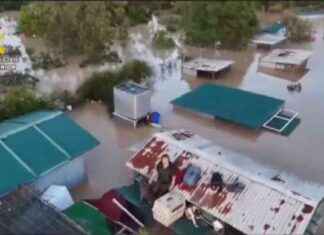Train collision between Iberia and Aena after the airport manager announced yesterday the result of the mega competition for handling, ground handling services. One of the biggest losers was the subsidiary of the IAG group, which was left out of the Prat contract and seven other airports. The company chaired by Fernando Candela was “perplexed” and did not accept the resolution. The reaction was immediate. On Tuesday, Iberia requested a review of the competition scores at each airport where it had not obtained a license and announced that it will take the appropriate actions.
It was one of the most anticipated tenders in the sector, with 5,000 million at stake for the exploitation of licenses at 43 airports and two heliports in the Aena network over the next seven years. The main news was that the offers presented by Iberia were not sufficient to continue operating in eight facilities: Barcelona, ??Mallorca, Malaga, Alicante, Gran Canaria, Tenerife South, Ibiza and Bilbao. In its place, two foreign companies broke in, the Belgian Aviapartner and the Scottish Menzies.
Of the five main airports in the Aena network, Iberia will only retain the handling license at Madrid-Barajas. The IAG subsidiary currently has a presence in the five largest facilities in the country, but was overtaken in four, in Barcelona, ??Palma de Mallorca, Malaga and Alicante. Even so, it will maintain a market share of 31% (today it has 35%).
There will be significant changes at Barcelona-El Prat airport. Until now, ground assistance services were provided by Iberia, Groundforce and Swissport. On the other hand, from the entry into force of the contract that was resolved yesterday, the Barcelona facilities will be operated by Aviapartner, Menzies and Groundforce, a subsidiary of the Globalia group, parent of Air Europa. Iberia will disappear. Aena sources assured that the damaged company had presented a “very good” offer but other applicants had obtained a better score. In El Prat, Iberia was in fourth position, 1.10 points behind Groundforce, with the worst financial offer but the best technical plan.
Iberia replied to Aena that “the qualification and competitiveness demonstrated by the subsidiary, which over the last seven years has carried out a profound transformation and has continued to add new customers to its portfolio significantly with a high degree of satisfaction, they have not been reflected in the result of the competition”. Its punctuality, the company added, at the airports where it has not renewed its license is 99.5%, much higher than what was required by the specification and with a high degree of satisfaction from its customers. In addition, “Iberia’s economic offer at all these airports included discounts higher than those of the previous competition, in which Iberia obtained licenses”.
In total, Groundforce, from Globalia, obtained a handling license in the five main airports in Spain; Aviapartner and Menzies, in four, and Iberia and Swissport, in one.
Aena sources explained that Iberia may consider continuing to provide the autohandling service to the companies of the IAG group. For example, in Barcelona, ??where you can take care of the ground assistance services for Iberia, Vueling, Iberia Express, British Airways or Aer Lingus without the need to hire any of the new awardees.
One of the salient aspects of the contracts that will be signed with the awarded companies affects the obligation to subrogate all the workers who currently work in the Aena network and under the same conditions. At the moment, there are 11,290 employees in Spain who carry out support tasks for the different airlines, according to the sectoral agreement. The aim of this mandatory subrogation, the manager explains, is to avoid a labor dispute like the one in 2006, when after a change in the awarding contract, Iberia workers started an illegal strike. They even invaded the Prat runways and caused the cancellation of more than 500 flights. There were 23 employees sentenced to two years in prison as perpetrators of a crime of public disorder.








